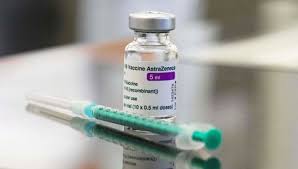“What were the processes before NAFDAC authorised it? Why did Nigeria accept Johnson & Johnson vaccine as South Africa, since it is cheaper and can be stored in refrigerator for three months and defends South African variant unlike the Oxford/AstraZeneca vaccine?, they queried.
Chairman, Expert Review Committee on COVID-19, Prof. Oyewale Tomori, told The Guardian that NAFDAC’S emergency authorisation for the vaccine meant that it had approved it for use in Nigeria.
On the processes it went through before the approval, Tomori, pioneer Vice Chancellor of Redeemers’ University and a consultant to WHO, said: “NAFDAC is in a better position to answer the questions.”
Reacting to concerns that the vaccine was ineffective for the South Africa variant, Tomori said: “It does protect but not as much as it protects against non-South African variant. Moreover, South Africa agreed that the first trial might not have provided appropriate answers as to the effectiveness of the vaccine.
“They are now repeating the trial with more people. The WHO also said the first trial was flawed and that the Oxford/AstraZeneca vaccine can still be used. So, we have not heard the final decision on the vaccine, but the verdict now favours the Oxford/AstraZeneca vaccine.”
Director General, Nigerian Institute for Medical Research (NIMR) Yaba, Lagos, Prof. Babatunde Salako, said the implication was that the Federal Government could negotiate to purchase the vaccine for use in the country.
“NAFDAC reviewed the dossier of the vaccine development process submitted to it including results of phase I & II clinical trials. They also reviewed the interim report of the phase III trial, which measured efficacy and safety of the vaccine. I believe the approval was given having been satisfied with the information at their disposal.”
Also, a member of the Lagos State COVID-19 response team and former Chief Medical Director (CMD) of the Lagos University Teaching Hospital (LUTH) Idi-Araba, Prof. Akin Osibogun, told The Guardian that EUA of the vaccine in Nigeria means the vaccine can be legally imported into the country and administered to Nigerians.
He, however, said NAFDAC should monitor the vaccine for safety and efficiency during the period it would be administered on Nigerians, adding that to grant the EUA, NAFDAC must have reviewed all data related to clinical trials on the vaccine including analyses of safety and efficacy.
Medical Director, Medical Art Centre (MART), Lagos, and pioneer of In Vitro Fertilisation (IVF), Prof. Oladapo Ashiru, said the Oxford/AstraZeneca vaccine was probably the most appropriate for Nigeria, adding that its application could help reduce infections, transmissions and deaths.
He said during the emergencies as the coronavirus, NAFDAC would probably examine data from among Africans who had taken the vaccine in the United Kingdom (UK) and a few trials in Nigeria.
“Although the vaccine does not protect against the South Africa variant or any other variant that may arise, it is better than nothing for high-risk persons. The addition of the vaccine the immune boosters should help,” he added.
Director-General of NAFDAC, Prof. Mojisola Adeyeye, who announced the approval in Abuja yesterday, noted that the agency received the dossier of the vaccine last week, added that NAFDAC’s safety committee evaluated its safety and efficacy for Nigerians.
She explained that the Oxford/AstraZeneca vaccine, also known as ChAdOx1 nCoV-19, or AZD1222, was a viral vector vaccine. Scientists used an adenovirus, originally derived from chimpanzees, and modified it with the aim of training the immune system to mount a strong response against SARS-CoV-2 (the virus that causes COVID-19).
Adeyeye noted that the recommendation for EUA was based on rigorous scientific considerations such as vaccine quality, safety and efficacy, dose pack and storage.
She stated that the active substance for the vaccine is manufactured and controlled by Serum Institute of India Private Limited (SIIPL), adding: “A Good Manufacturing Practice (GMP) certificate and manufacturing license issued by the India National Regulatory Authority (NRA) has been presented and found to be authentic and valid.”
Minister of Health, Dr. Osagie Ehanire, said: “AstraZeneca’s COVID-19 vaccine is among those NAFDAC is evaluating. It begins with study of the dossiers manufacturers present. Scientific processes used to check safety and efficacy. The implication is that we may use AstraZeneca when NAFDAC issues an EUA.
One his part, Chairman, Pharmaceutical Manufacturers Group of the Manufacturers Association of Nigeria (PMG-MAN), Dr. Fidelis Ayebae, argued that NAFDAC would ultimately approve all vaccines that meet emergency use authorisation requirements.
source: Medicalworldnigeria

 Medical experts have disagreed on the most appropriate COVID-19 vaccine for the country as the National Agency for Food, Drug Administration and Control (NAFDAC), yesterday, gave emergency use authorisation (EUA) for Oxford/AstraZeneca vaccine.
Medical experts have disagreed on the most appropriate COVID-19 vaccine for the country as the National Agency for Food, Drug Administration and Control (NAFDAC), yesterday, gave emergency use authorisation (EUA) for Oxford/AstraZeneca vaccine.




